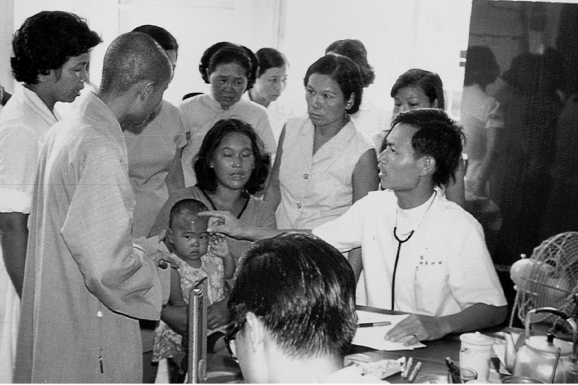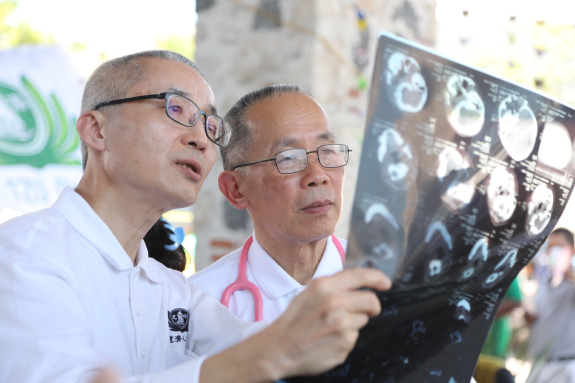In order to break the cycle of illness and poverty, the Mission of Medicine started with a free clinic, followed by fundraising to build the first Tzu Chi hospital. Today, there is a comprehensive Tzu Chi medical network around Taiwan, inclusive of six hospitals, free clinic and home medical care services, etc. In addition, the Tzu Chi International Medical Association (TIMA) has established its presence in various countries, to serve in areas where medical resources may be lacking, thus safeguarding people’s lives and health at the same time.

Seeing the clear connection between illness and poverty, and the need to provide patient-centered care that respected the life and dignity of even the poorest of the poor, Tzu Chi Foundation started with a free clinic in Hualien in 1972. The clinics also extended aid to disaster victims, and to people living in remote areas, who traveled long hours to receive care.
Master Cheng Yen sought to build a hospital that would be open to the neediest, and raised funds to build the first Tzu Chi hospital. The Hualien Tzu Chi hospital opened in 1986 as a non-profit institution. Tzu Chi continued to work tirelessly to collect donations and attract volunteers who could offer service at the hospital. By 1989, free nursing education led to the first Tzu Chi Nursing College in Hualien.
Today, there is a comprehensive Tzu Chi medical network around Taiwan, inclusive of six hospitals, free clinic and home medical care services, and a clinic in Suzhou, China. Tzu Chi’s medical centers provide integrated medical services while also addressing the emotional and spiritual needs of all patients, rich or poor.
The constant need for medical assistance spurred Master Cheng Yen to organize Tzu Chi’s medical volunteers from different countries into the Tzu Chi International Medical Association (TIMA) in 1997. This group is a global medical service network that serves in areas where medical resources may be lacking. It includes emergency rescue teams and has over 10,000 medical professional members in 15 countries. By 2016, medical aid had reached 2.8 million people in 50 countries.






